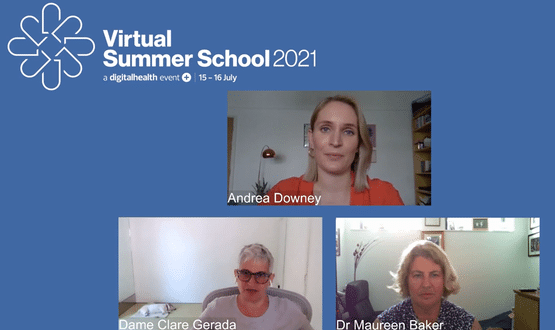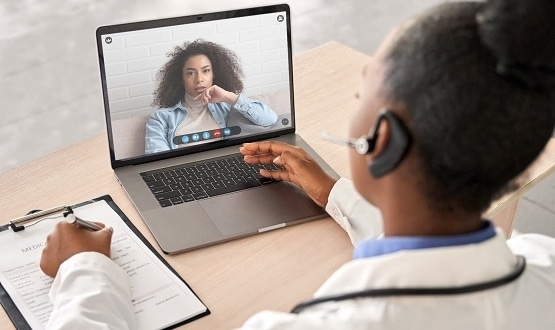Summer School 2021: Tech supports practitioners but won’t replace them
- 16 July 2021

The chair of the Professional Record Standards Body (PRSB) has said there is “always a place for personal human-to-human contact” but technology can help support practitioners.
Speaking on the final day of Virtual Summer School 2021, Maureen Baker, who is also the chief medical officer for Healthily, spoke about the role AI and technology has to play in general practice.
While she believes AI will not replace doctors, she does see the value of technology.
“There’s always a place for the personal human-to-human contact but that does not mean that humans can’t be supported by digital technologies,” she said.
“In my own personal opinion, I think there is huge potential for technology to support healthcare practitioners to deliver safer, better care and also improve convenience for patients.”
This sentiment was echoed by the second afternoon keynote, Dame Clare Gerada who is a medical practitioner and co-chair of the NHS Assembly.
“Digital will not replace the human, AI will certainly support care and it enhances the ability for people to have human contact because it creates the time where I can spend longer with my patients and longer in my community,” she said.
Aside from the use of technology by doctors, Baker also highlighted another important topic – the issue of patient data.
Over the last few months, the issue has made national headlines after NHS Digital announced a new collection service would be launched – the General Practice Data for Planning and Research (GPDPR) programme.
The programme has been delayed until September after concerns were raised about who would have access to the data and that not enough time had been allocated to allow GPs to inform patients about their options.
Baker said she believes the topic of patients accessing and controlling their data will not go away.
“I know this is a controversial subject, however, this is very much the direction of travel,” she said.
Baker added that digital leaders need to “grasp this particular nettle” and make sure that patients, who are willing to share their data with the NHS, understand fully how it will be used.




